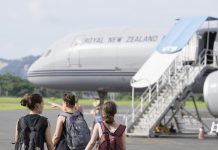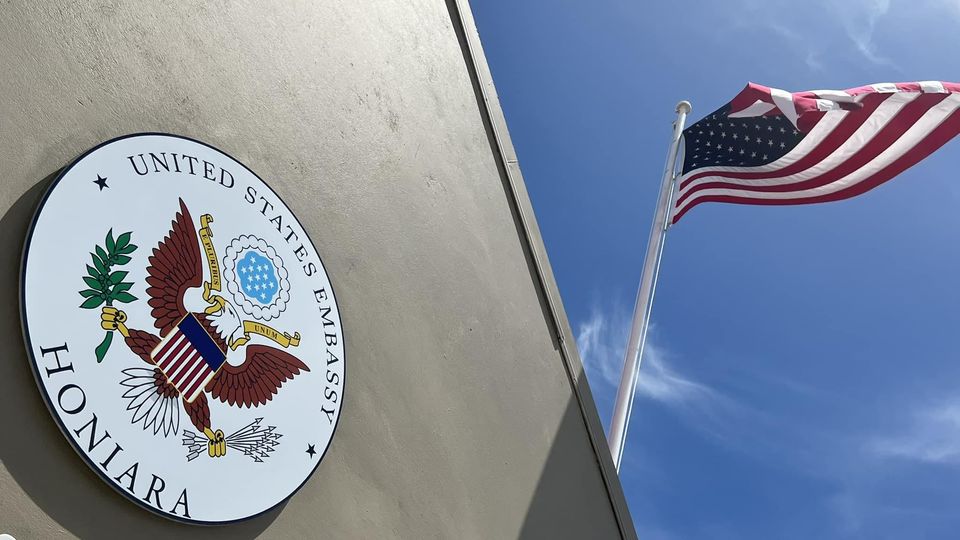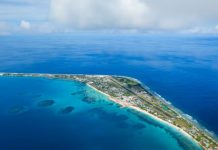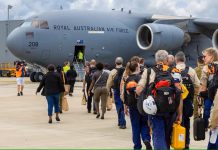The State Department says it plans a massive increase in diplomatic personnel and spending for facilities at new U.S embassies in the Pacific islands as the Biden administration forges ahead with efforts to counter China’s growing influence in the region.
In a notice sent to Congress this week, the department said it envisions hiring up to 40 staffers over the next five years for each of four recently opened or soon-to-be-opened embassies in the Pacific. Those include an embassy in Honiara, Solomon Islands, that opened in January; an embassy in Nuku’alofa, Tonga, that opened in May and planned embassies in Port Vila, Vanuatu, and in Tarawa, Kiribati. Currently there are only two temporary American staffers each in Honiara and Nuku’alofa.
At each of those posts, the department says it will spend at least $10 million for start-up, design and construction costs. Only a portion of that amount is included in the administration’s current budget proposal and the department said that in addition to that amount, each new embassy will need $3.3 million a year to cover upkeep and operating costs.
China and Southeast Asian nations have agreed to try to conclude within three years a long-delayed nonaggression pact aimed at preventing frequent territorial spats in the busy South China Sea from turning into a major armed conflict.
The update to Congress, which was sent on Wednesday and obtained by The Associated Press, comes as the administration moves to boost the U.S presence in the Pacific in response to China’s increasing assertiveness there.
It also came as Secretary of State Antony Blinken was visiting Indonesia for a southeast Asian regional security forum and planned an extended Pacific trip at the end of July.
The notice pointed out that China has permanent diplomatic facilities in eight of the 12 Pacific island nations that the United States recognises and said the U.S needs to catch up.
“The lack of a permanent U.S. diplomatic presence in more heavily populated (Pacific islands) undermines U.S efforts to engage as an indispensable partner and Pacific power during a time of heightened strategic competition,” it said.
“To address this challenge, the United States has moved to dramatically increase its diplomatic and development engagement with the region.”
In the Solomon Islands, Tonga, Vanuatu and Kiribati, initial staffing at the embassies will be limited to four resident American diplomats, including an ambassador, and five local staffers along with an as-yet undetermined number of local security guards, the department said.
However, it added that projected staffing at each embassy over the next five years could jump to between 30 and 40 American and local employees “as facility space allows.”
At the same time, the department said that attracting experienced and competent staff to fill the new posts will be difficult without offering incentives to prospective employees, suggesting that Congress may need to allocate more money if the U.S is to remain competitive with China in the region.
“Recruitment for new and existing positions remains extremely difficult without a commensurate compensation package to attract talented officers asked to serve in remote locations subject to extreme weather phenomena, poor telecommunication systems, and inadequate medical and schooling facilities,” it said.
“Rectifying this situation would require an investment in resources and creative solutions to attract and retain a cadre of Pacific experts,” it said. “The United States needs to significantly increase staffing resources if it plans to robustly engage in the Pacific islands to preserve an open, secure, and prosperous Indo-Pacific.”
The notification did not elaborate on what those resources or creative solutions might be.
SOURCE: AP/PACNEWS














